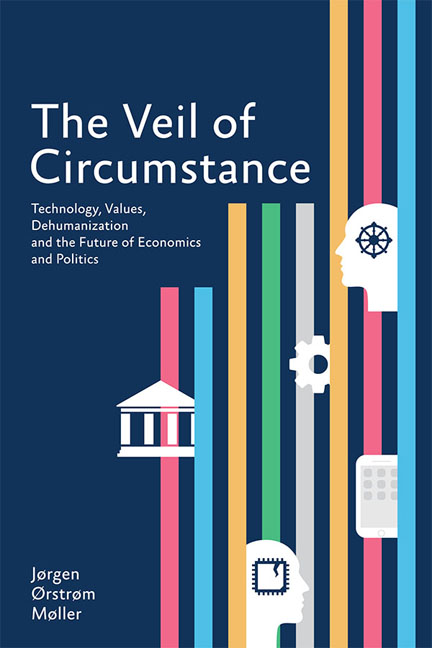 The Veil of Circumstance
The Veil of Circumstance 11 - Power Shift – Values
from IV - GEOPOLITICS
Published online by Cambridge University Press: 19 May 2017
Summary
The structure of alliances forged since 1945 is gradually breaking up. The political architecture designed by Western powers for the Middle East and Africa was artificial and did not reflect the realities of history, religion or tribal structure. The global picture is volatile. Leadership is nowhere to be found and is inadequately replaced by tactical manoeuvring. Nation-states are behaving in less predictable ways. Values take over as the predominant factor driving international actions, often undertaken by non-governmental operators. Asymmetrical and hybrid warfare — a mix of soft and hard power — blurs the distinction between war and peace. Global governance has not managed to digest these trends, and even less to adapt to them, allowing a dangerous power vacuum to arise. The main question is whether globalization can survive.
Shift in Parameters: Imperial Power,Hyperpower — The Response of the United States
Al-Qaeda and the Islamic State announce a new kind of empire: Values-based empires kept together across political borders by shared and common values, anchored in religious beliefs. This runs counter to the operation of geopolitical power as seen over the last couple of centuries, which explains why existing powers (the United States and Europe) find it so difficult to respond and react to them. Since the end of the Cold War, the United States has been by far the strongest power, but has not been able to transform that status into a long-term strategy, either to maintain U.S hegemony or to shape another global power structure. Military power is still effective, but less so than in the past. The lesson that only values-based empires can endure has not been learned.
The Middle East in general, and the so-called Islamic State in particular, may be the barometer of what is to come: Values overcoming economics and military power. The political structure in this part of the world — invented after World War I and revised after World War II — is artificial, neither rooted in history nor reflecting indigenous tribal power, ethnicity or religious relationships. Groups that had fought each other for centuries suddenly found themselves inside the same political framework, with the expectation that they replace hatred with friendship.
- Type
- Chapter
- Information
- The Veil of CircumstanceTechnology, Values, Dehumanization and the Future of Economics and Politics, pp. 245 - 262Publisher: ISEAS–Yusof Ishak InstitutePrint publication year: 2016


